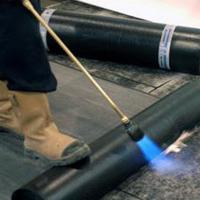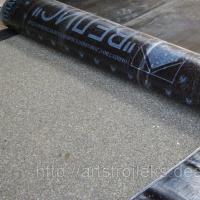Рынок кровельных материалов России до насыщения еще далеко

Ross Elementary - Administrative Office Sightline Improvements
Просмотреть фотографию в реальном размере
LFTR in 5 Minutes - THORIUM REMIX 2011 | torij torija torio гғҲгғӘгӮҰгғ
THORIUM REMIX 2011 starts with a 5 minute TL;WL summary, to hold you over until you find your Ritalin. YouTube Closed Captioning is available in English, and many other languages.
To learn more about the Liquid Fluoride Thorium Reactor visit: http://energyfromthorium.com/
See http://THORIUMREMIX.com/ for full list of multimedia source material.
Key YouTube video components:
Kirk Sorensen @ TEDxYYC http://www.youtube.com/watch?v=N2vzotsvvkw
Kirk Sorensen @ Protospace - http://www.youtube.com/watch?v=YVSmf_qmkbg
Kirk Sorensen @ MRU - http://www.youtube.com/watch?v=D3rL08J7fDA
Kirk Sorensen @ TEAC3 - http://www.youtube.com/watch?v=6-uxvSVIGtU
Kirk Sorensen @ Dr. Kiki Science Hour #84 - http://www.youtube.com/watch?v=vEpnpyd-jbw
After Fukushima: The Fear Factor - http://www.youtube.com/watch?v=OVQ0NvEcyqw
Robert Hargraves @ TEAC3 - http://www.youtube.com/watch?v=BOoBTufkEog
Alexander Cannara @ TEAC3 - http://www.youtube.com/watch?v=aUVq81kBKyk
James Kennedy @ TEAC3 - http://www.youtube.com/watch?v=mrDeB86YpV4
Q: What is thorium and what makes it special?
A: Thorium is a naturally-occuring mineral that holds large amounts of releasable nuclear energy, similar to uranium. This nuclear energy can be released in a special nuclear reactor designed to use thorium. Thorium is special because it is easier to extract this energy completely than uranium due to some of the chemical and nuclear properties of thorium.
Q: What is a liquid-fluoride reactor?
A: A liquid-fluoride nuclear reactor is different than conventional nuclear reactors that use solid fuel elements. A liquid-fluoride reactor uses a solution of several fluoride salts, typically lithium fluoride, beryllium fluoride, and uranium tetrafluoride, as its basic nuclear fuel. The fluoride salts have a number of advantages over solid fuels. They are impervious to radiation damage, they can be chemically processed in the form that they are in, and they have a high capacity to hold thermal energy (heat). Additional nuclear fuel can be added or withdrawn from the salt solution during normal operation.
Q: Are the salts safe?
A: Very safe. Unlike other coolants considered for high-performance reactors (like liquid sodium) the salts will not react dangerously with air or water. This is because they are already in their most stable chemical form. Their properties do not change even under intense radiation, unlike all solid forms of nuclear fuel.
Q: What is nuclear waste and how does a liquid-fluoride reactor address this issue?
A: So-called "nuclear waste" or spent-nuclear fuel is produced in conventional (solid-core) nuclear reactors because they are unable to extract all of the nuclear energy from their fuel before they have to shutdown. LFTR addresses this issue by using a form of nuclear fuel (liquid-fluoride salts of thorium) that allow complete extraction of nuclear energy from the fuel.
ZEITGEIST в…ў : MOVING FORWARD жҷӮд»ЈгҒ®зІҫзҘһ ж—Ҙжң¬иӘһеӯ—幕 CCзүҲ
https://docs.google.com/leaf?id=0B1-THW_cUVceZjcyOTU2YTMtZGY0NC00YjI0LWIxZDkt...
ZEITGEIST: MOVING FORWARD | OFFICIAL RELEASE | 2011 гҒ® гӮӘгғ•гӮЈгӮ·гғЈгғ«зүҲж—Ҙжң¬иӘһеӯ—幕иҝҪеҠ гҖӮ3/23
в—ҸCCгғңгӮҝгғіпҪһиЁҖиӘһ欄пҪһеҸігҒ®иөӨгҒ„гӮ№гғ©гӮӨгғүгғңгӮҝгғігӮ’жңҖдёӢж–№гҒ«гӮ№гғ©гӮӨгғүгҒҷгӮӢгҒЁйҒёжҠһгҒ§гҒҚгҒҫгҒҷгҖӮ
в—ҸеҲқжңҹиЁӯе®ҡгҒҜгҖҒе…¬й–ӢдҪңжҲҗеӯ—幕гҒ§гҒҷгҖӮеҪ“еӢ•з”»гҒҜгҖҒе…¬й–ӢдҪңжҲҗеӯ—幕гҒ§е§ӢгҒҫгӮҠгҒҫгҒ—гҒҹгҒ®гҒ§гҖҒгҒ”зҗҶи§ЈгҒ®гҒ»гҒ©гӮҲгӮҚгҒ—гҒҸгҒҠйЎҳгҒ„гҒ—гҒҫгҒҷгҖӮгҒӘгҒҠгҖҒе…¬й–ӢдҪңжҲҗеӯ—幕гҒҜгҖҒеӣәе®ҡгҒ§гҒҜгҒӘгҒҸгҖҒзҡҶж§ҳгҒ®гҒ”еҚ”еҠӣгҒ«гӮҲгӮҠгҖҒжӣҙгҒ«ж”№е–„гҖҒеүҚйҖІгҒ•гӮҢгӮӢгҒӘгӮүе№ёгҒ„гҒ§гҒҷгҖӮ
вҖ» й–ўйҖЈ
вҳ…еҶ…йғЁиў«гҒ°гҒҸгҒ«иӯҰйҗҳгҖңгӮҜгғӘгӮ№гғ»гғҗгӮәгғ“гғјеҚҡеЈ«
http://www.youtube.com/watch?v=YGDM5eyRvCM&feature=channel_video_title
вҳ…зҰҸеі¶еҺҹзҷәгҒҢеҶҚиҮЁз•ҢгҒ—гҒҰгҒ„гҒҹдәӢгӮ’зұіеӣҪNRCж–°гғҮгғјгӮҝгҒҢиЁјжҳҺ!! 8/21
http://www.youtube.com/watch?v=bSZzhBXLuLk&feature=channel_video_title
вҳ…гғһгӮӨгӮұгғ«гғ»гӮ·гғҘгғҠгӮӨгғҖгғјпјҡгҖҢеҺҹеӯҗеҠӣгҒ«гҒҷгҒ§гҒ«жңӘжқҘгҒҜгҒӘгҒ„гҖҚ д»ҸгҒ®йӣ»еҠӣгҒҜгҖҖзӢ¬гҒӢгӮүгҒ®йӣ»еҠӣијёе…ҘгҒ«й јгҒЈгҒҰгҒ„гҒҹ
http://genpatsu.wordpress.com/2011/06/11/mycle-schneider/
вҳ…еҢ–зҹізҮғж–ҷгҒҜжһҜжёҮгҒ—гҒӘгҒ„гғ»гғ»гғ»жӯҰз”°йӮҰеҪҰ ж•ҷжҺҲ
http://takedanet.com/2011/06/post_f68d.html
вҳ…жӯҰз”° д»®жғі з’°еўғеӨ§иҮЈ
http://www.youtube.com/watch?v=SWOeBQPnSzs
Zeitgeist: Moving Forward - ENG MultiSub [FULL MOVIE]
Il film ГЁ stato rilasciato indipendentemente in modo contemporaneo il 15 gennaio 2011 in 60 nazioni e 30 lingue, con 340 proiezioni in tutto il mondo. E' stato definito uno degli eventi indipendenti piГ№ grandi della storia del cinema.
Il film ГЁ stato rilasciato gratuitamente su internet dal 26 gennaio 2011 e ha ricevuto 300000 visualizzazioni nelle prime 24 ore e oltre 1,4 milioni di visualizzazioni nei cinque giorni successivi. Il 1 febbraio 2011 ГЁ stato rilasciato un file torrent per il download gratuito attraverso il network VODO, permettendo la donazione per finanziare i film successivi.
Zeitgeist: Moving Forward identifica alcuni problemi della societГ , e propone un modo per vivere in equilibrio con l'ambiente, senza inquinare nГ© distruggere le risorse naturali. Nel film vengono intervistati esperti in tutti i settori, come Dr. John McMurtry, filosofo della University of Guelph in Ontario, Dr. James Gilligan, Clinical Professor of Psychiatry alla School of Medicine di New York, Richard Wilkinson, Professor Emeritus della University of Nottingham.
Il film ГЁ diviso in quattro parti. Ogni parte ГЁ composta da interviste ad esperti, narrazioni e seguenze animate.
Parte I: La natura umana
Il film inizia con una breve animazione narrata da Jacque Fresco (fondatore del Venus Project)
Parte II: Patologia sociale
Parte III: Progetto Terra
Parte IV: Rise
Titolo originale: Zeitgeist: Moving Forward
Lingua originale: inglese
Paese: USA
Anno: 2011
Durata: 161 min
Genere: Documentario
Regia: Peter Joseph
Da Wikipedia, l'enciclopedia libera.
















